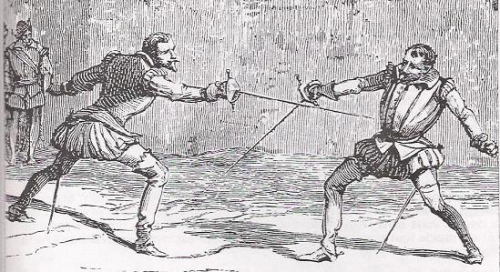The political between antagonism and agonism
What is the best way to envisage democratic politics? Until a few years ago, the most fashionable model in political theory was that of ‘deliberative democracy’ defended, in different forms, by John Rawls and Jürgen Habermas. But another model, which proposes an ‘agonistic’ way of conceiving democracy, is steadily gaining influence, and I believe it is useful to examine what its representatives have in common. As I myself belong to the ‘agonistic camp’, I have chosen to highlight the differences that exist between my conception of agonism and that of a certain number of theorists who have other sources of inspiration.
I will begin by presenting the main principles of the theoretical framework that informs my reflection. I have suggested distinguishing between the political, which is linked to the dimension of antagonism present in human relations an antagonism that manifests itself politically in the construction of the friend/enemy relation and that can emerge from a large variety of social relations -, and politics, which aims to establish an order and to organise human coexistence under conditions that are marked by ‘the political’ and thus always conflictual. We find this distinction between the political and politics in the other agonistic theories, though not always with the same signification. We can in fact distinguish two opposing conceptions of what characterises ‘the political’. There are those for whom the political refers to a space of liberty and common action, while others view it as a site of conflict and antagonism. It is from this second perspective that my work proceeds, and I will demonstrate how it is on this point that the fundamental divergence between the different agonistic theories rests.
Politics and antagonism
One of the principal theses that I have defended in my work is that properly political questions always involve decisions which require a choice between alternatives that are undecidable from a strictly rational point of view. This is something the liberal theory cannot admit due to the inadequate way it envisages pluralism. The liberal theory recognises that we live in a world where a multiplicity of perspectives and values coexist and, for reasons it believes to be empirical, accepts that it is impossible for each of us to adopt them all. But it imagines that these perspectives and values, brought together, constitute a harmonious and non-conflictual ensemble. This type of thought is therefore incapable of accounting for the necessarily conflictual nature of pluralism, which stems from the impossibility of reconciling all points of view, and it is what leads it to negate the political in its antagonistic dimension.
I myself argue that only by taking account of the political in its dimension of antagonism can one grasp the challenge democratic politics must face. Public life will never be able to dispense with antagonism for it concerns public action and the formation of collective identities. It attempts to constitute a ‘we’ in a context of diversity and conflict. Yet, in order to constitute a ‘we’, one must distinguish it from a ‘they’. Consequently, the crucial question of democratic politics is not to reach a consensus without exclusion which would amount to creating a ‘we’ without a corollary ‘they’ but to manage to establish the we/they discrimination in a manner compatible with pluralism.
According to the ‘agonistic pluralism’ model that I developed in The Democratic Paradox (London: Verso, 2000) and On the Political (London: Routledge, 2005), pluralist democracy is characterised by the introduction of a distinction between the categories of enemy and adversary. This means that within the ‘we’ that constitutes the political community, the opponent is not considered an enemy to be destroyed but an adversary whose existence is legitimate. His ideas will be fought with vigour but his right to defend them will never be questioned. The category of enemy does not disappear, however, for it remains pertinent with regard to those who, by questioning the very principles of pluralist democracy, cannot form part of the agonistic space. With the distinction between antagonism (friend/enemy relation) and agonism (relation between adversaries) in place, we are better able to understand why the agonistic confrontation, far from representing a danger for democracy, is in reality the very condition of its existence. Of course, democracy cannot survive without certain forms of consensus, relating to adherence to the ethico-political values that constitute its principles of legitimacy, and to the institutions in which these are inscribed. But it must also enable the expression of conflict, which requires that citizens genuinely have the possibility of choosing between real alternatives.
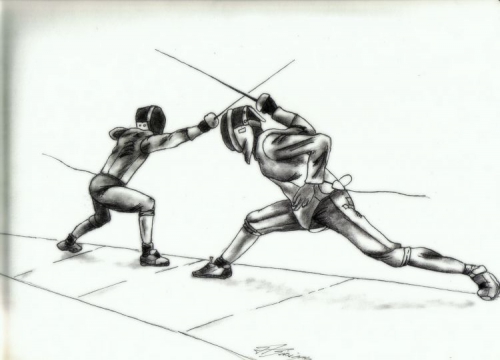
Politics and hegemony
It is necessary at this point to introduce the category of hegemony, which will enable us to identify the nature of the agonistic struggle. To understand the political as the ever present possibility of antagonism, the absence of a final foundation and the undecidability that pervades every order must be acknowledged. It is precisely to this that the category of hegemony refers, and it indicates that every society is the product of practices that seek to institute an order in a context of contingency. Every social order is therefore hegemonic in nature, and its origin political. The social is thus constituted by sedimented hegemonic practices, that is, practices that conceal the originary acts of their contingent political institution and that appear to proceed from a natural order. This perspective reveals that every order results from the temporary and precarious articulation of contingent practices. Things could always have been different and every order is established through the exclusion of other possibilities. It is always the expression of a particular structure of power relations, and it is from here that its political character stems. Every social order that at a given moment is perceived as natural, together with the ‘common sense’ that accompanies it, is in fact the result of sedimented hegemonic practices and never the manifestation of an objectivity that one could consider external to the practices through which it was established.
What is at stake in the agonistic struggle is the very configuration of the power relations that structure a social order and the type of hegemony they construct. It is a confrontation between opposing hegemonic projects that can never be reconciled rationally. The antagonistic dimension is therefore always present but it is enacted by means of a confrontation, the procedures for which are accepted by the adversaries. The agonistic model that I propose acknowledges the contingent character of the hegemonic articulations that determine the specific configuration of a society at a given moment; as pragmatic and contingent constructions, they can always be disarticulated and transformed by the agonistic struggle. Unlike the liberal models, such an agonistic perspective takes account of the fact that every social order is politically instituted and that the ground on which hegemonic interventions occur is never neutral for always the product of previous hegemonic practices. Far from envisaging the public sphere, as for example Habermas does, as fertile ground in the search for consensus, my agonistic approach conceives it as the battlefield on which hegemonic projects confront one another, with no possibility whatsoever of a final reconciliation.
Which agonism?
My disagreement with Habermas is not surprising given that it is partly in opposition to his ‘deliberative democracy’ model that I developed my agonistic conception. But I would now like to examine the differences that exist between my approach and the one found within a certain number of conceptions that also adopt an agonistic perspective. Beyond the ‘family resemblance’ linking these conceptions, there are important points of divergence, which similar vocabulary tends to conceal.
I will begin with the case of Hannah Arendt. Arendt is often considered a representative of agonism, and her references to the Greek Agon can justify such a reading. But the conception of agonism that can be derived from her work is very different to the one I defend. Indeed, we discover in Arendt what I would call an ‘agonism without antagonism’. By this I mean that, although she insists a good deal on human plurality and conceives politics as dealing with the community and with reciprocity between different beings, she never recognises that this plurality is at the origin of antagonistic conflicts. According to Arendt, to think politically consists in developing the ability to see things from a multiplicity of perspectives. As indicated by her reference to Kant and his notion of enlarged mentality, the pluralism she advocates is finally not so different to Habermas’s, also resting as it does on the horizon of intersubjective agreement. It is clear that what she seeks in the Kantian critique of aesthetic judgement is a procedure to obtain intersubjective agreement in the public sphere. Despite the differences in their respective approaches, I therefore believe that Arendt, like Habermas, envisages the public sphere as a place where consensus can be established. Obviously, in her case, this consensus will be the result of an exchange of voices and opinions (in the Greek sense of doxa), rather than the rational Diskurs found in Habermas. As noted by Linda Zerilli in Feminism and the Abyss of Freedom (Chicago: The University of Chicago Press, 2005), while for Habermas consensus emerges through what Kant calls disputieren, an exchange of arguments bound by logical rules, for Arendt it is a matter of streiten, where agreement is produced by persuasion and not based on irrefutable proofs. But neither of the two manages to acknowledge the hegemonic nature of every form of consensus in politics or the ineradicable character of antagonism, the moment of Widerstreit, that which Lyotard calls the différend.

My conception of agonism must also be distinguished from Bonnie Honig’s, which is clearly influenced by Arendt. In her book Political Theory and the Displacement of Politics (Ithaca: Cornell University Press, 1993), Honig criticises liberal conceptions for being too consensual and she advances the emancipatory potential of political contestation, which enables established practices to be questioned. She defends a conception of politics centred on virtú, and places agonistic contestation at its heart, thanks to which citizens are able to keep open a space of debate and prevent the confrontation of positions from drawing to a close. The permanent questioning of dominant identities and ideas is central to the agonistic struggle as conceived by Honig. Thus, in an article titled “Towards an Agonistic Feminism: Hannah Arendt and the Politics of Identity” (Feminist Interpretations of Hannah Arendt, edited by Bonnie Honig, The Pennsylvania State University Press, 1995), she declares that the importance of Hannah Arendt’s work for feminists is to provide them with an agonistic politics of performativity. While acknowledging that Arendt never identified with feminism, Honig asserts that her agonistic politics of performativity is crucial for a feminist politics because it enables feminism to be envisaged as a site of contestation over the meaning, practice and politics of gender and sexuality. The appropriation of Arendt’s ideas should, according to Honig, enable feminists to understand that identities are always performative productions and to thereby question the existing positions of subject and liberate the identity of ‘woman’ from the restrictive categories in which we try to enclose it. The idea of an identity suitable for women and that would serve as a starting point for a feminist politics is replaced by a multiplicity of identities constantly produced in an agonistic space, opening the way for feminist emancipation.
We can observe that the agonistic struggle is, according to Honig, reduced to the moment of contestation. It is important for her to guarantee the expression of plurality and to prevent the closure of the questioning process. However, I myself consider that this is but one of the dimensions of the agonistic struggle, which cannot be limited to contestation. The second moment, involving the construction of new hegemonic articulations, is fundamental in politics. It is for this reason that I regard Honig’s conception of agonism as inadequate for envisaging democratic politics.
I have a similar problem with the conception of William Connolly, another theorist of agonism. Connolly is influenced by Nietzsche rather than Arendt, and he has endeavoured to render his Nietzschian conception of the Agon compatible with democratic politics. In his book Pluralism (Durham: Duke University Press, 2005) he argues for a radicalisation of democracy through the development of a new democratic ethos among citizens. He conceives this ethos as one of permanent engagement in agonistic contestation that would make all attempts to bring closure to debate impossible. The central notion of Connolly’s work is that of ‘agonistic respect’, which he presents as originating in our common existential condition, itself linked to our struggle for identity and the recognition of our finitude. Agonistic respect constitutes for him the cardinal virtue of the type of pluralism he advocates and he considers it the most important political virtue in the pluralist world we live in today. Of course, I agree with Connolly when he insists on the role respect must play between adversaries engaged in an agonistic struggle. But I believe it is necessary to question the limits of this agonistic respect. Can all antagonisms be transformed into agonism? In other words, must all positions be considered legitimate and must they be granted a place inside the agonistic public sphere? Or must certain claims be excluded because they undermine the conflictual consensus that constitutes the symbolic framework in which opponents recognise themselves as legitimate adversaries? To put it another way, can one envisage pluralism without antagonism?
This is in my opinion the properly political question that Connolly’s approach is not able to ask. It is for this reason that I do not consider his conception of agonism any better placed than Honig’s to serve as a framework for democratic politics. In order to think and act politically, we cannot escape the moment of decision and this requires establishing a frontier and determining a space of inclusion/exclusion. Any perspective that evades this moment renders itself incapable of transforming the structure of power relations and of instituting a new hegemony. I certainly do not intend to deny the importance of a democratic ethos but I think it would be a mistake to reduce democratic politics to the promotion of an ethics of agonistic respect. Yet this appears to be what Connolly proposes and, rather than a new conception of democratic politics, what we find in his work is a new form of pluralist ethics. It undoubtedly has its merits but is not sufficient to envisage the nature of a hegemonic democratic politics and the limits the latter must impose on pluralism.
The fundamental difference between my conception of agonism and those that I have just examined resides in the absence in the cases of Arendt, Honig and Connolly of the two dimensions central to my approach and which I believe are indispensable to think the political: antagonism and hegemony. The principal objective of these authors is to prevent the closure of debate and to give free rein to the expression of plurality. Their celebration of a politics of destabilisation ignores the phase of hegemonic struggle, which consists in the establishment of a chain of equivalence between democratic struggles in order to construct another hegemony. However, it is not enough to disturb the dominant procedures and disrupt existing arrangements to radicalise democracy. Once we accept that antagonism can never be definitively eliminated and that every order is hegemonic in nature, we cannot avoid the central question in politics: what are the limits of agonism, and which institutions and configurations of power must be transformed to radicalise democracy? This requires the moment of decision to be confronted and necessarily implies a form of closure. It is the price to pay for acting politically.
To finish, I would like to suggest that this inability to account for the nature of the political decision in the authors I have just examined is linked to the way they conceive the political as common action and envisage pluralism on the mode of the valorisation of multiplicity. This is what leads them to elude the constitutive role of conflict and antagonism. On the contrary, the other vision of the political, the one from which my work proceeds, recognises the constitutive character of social division and the impossibility of a final reconciliation. The two conceptions affirm that in modern democracy ‘the people’ can no longer be considered as ‘one’; but whereas in the first perspective it is seen as ‘multiple’, in the second it is understood as ‘divided’. The thesis I defend is that only once the ineradicable character of division and antagonism is recognised does it become possible to think in a properly political manner.
—
Chantal Mouffe (b. 1943) is a political theorist educated at the universities of Louvain, Paris, and Essex and a Professor of Political Theory at the University of Westminster. She has taught at many universities in Europe, North America and Latin America, and has held research positions at Harvard, Cornell, the University of California, the Institute for Advanced Study in Princeton, and the Centre National de la Recherche Scientifique in Paris. Between 1989 and 1995 she was Directrice de Programme at the College International de Philosophie in Paris. Professor Mouffe is the editor of Gramsci and Marxist Theory, Dimensions of Radical Democracy, Deconstruction and Pragmatism, and The Challenge of Carl Schmitt; co-author (with Ernesto Laclau) of Hegemony and Socialist Strategy: Towards a Radical Democratic Politics (1985); and author of The Return of the Political (1993), and The Democratic Paradox (2000). Her latest work is On the Political published by Routledge in 2005. She is currently elaborating a non-rationalist approach to political theory; formulating an ‘agonistic’ model of democracy; and engaged in research projects on the rise of right-wing populism in Europe and the place of Europe in a multi- polar world order.




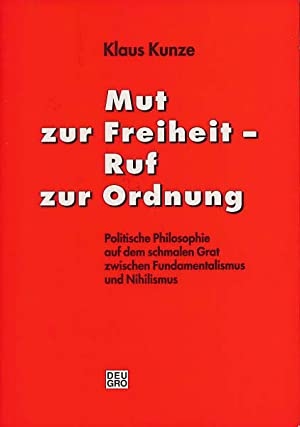
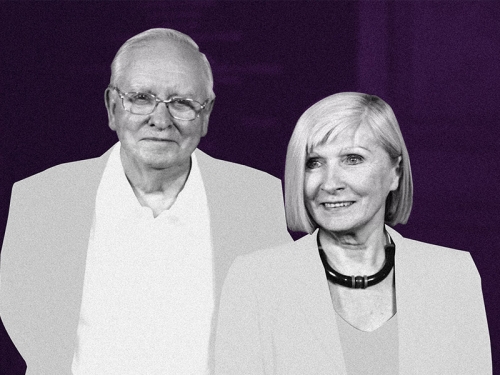
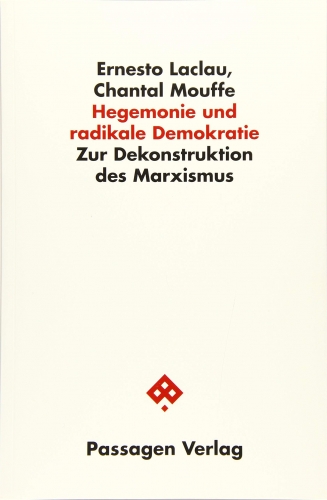
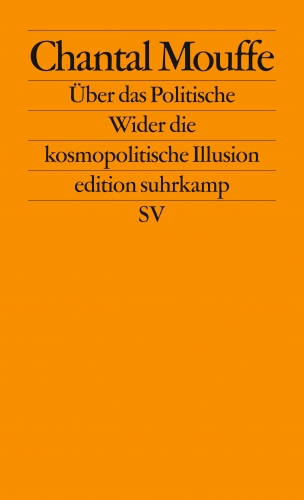

 del.icio.us
del.icio.us
 Digg
Digg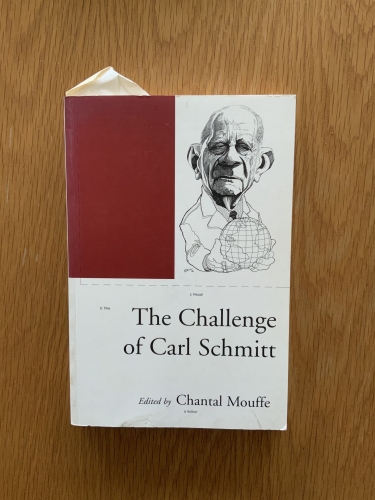
 L'individualisme libéral est en principe incompatible avec ce point de départ tendanciellement collectiviste. Pour l'individualiste radical, "rien ne passe avant moi", comme l'avait formulé Max Stirner de manière paradigmatique. Il est ainsi devenu l'ancêtre spirituel des anarchistes, des autonomes et des capitalistes ultralibéraux. Un individualiste radical ne se réfère qu'à lui-même : "Aucune chose, aucun soi-disant "intérêt suprême de l'humanité", aucune "chose sacrée" ne vaut que tu la serves, que tu t'en occupes à cause d'elle ; tu peux chercher sa valeur uniquement dans le fait de savoir si elle vaut pour toi à cause de toi" [1].
L'individualisme libéral est en principe incompatible avec ce point de départ tendanciellement collectiviste. Pour l'individualiste radical, "rien ne passe avant moi", comme l'avait formulé Max Stirner de manière paradigmatique. Il est ainsi devenu l'ancêtre spirituel des anarchistes, des autonomes et des capitalistes ultralibéraux. Un individualiste radical ne se réfère qu'à lui-même : "Aucune chose, aucun soi-disant "intérêt suprême de l'humanité", aucune "chose sacrée" ne vaut que tu la serves, que tu t'en occupes à cause d'elle ; tu peux chercher sa valeur uniquement dans le fait de savoir si elle vaut pour toi à cause de toi" [1].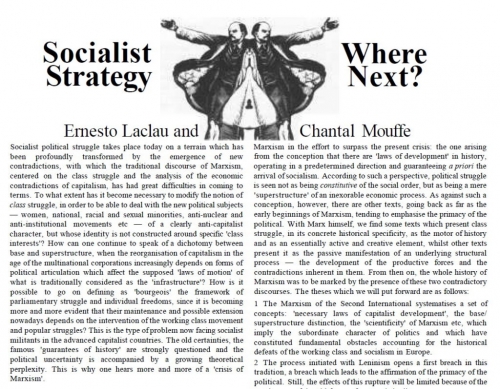
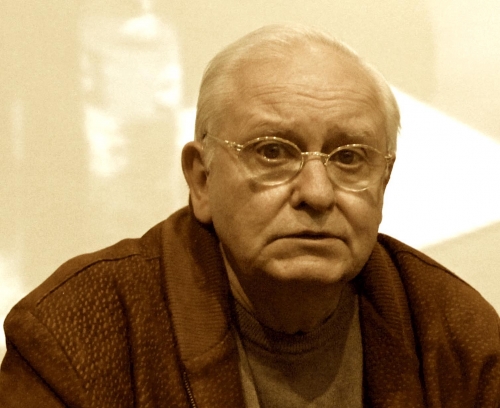
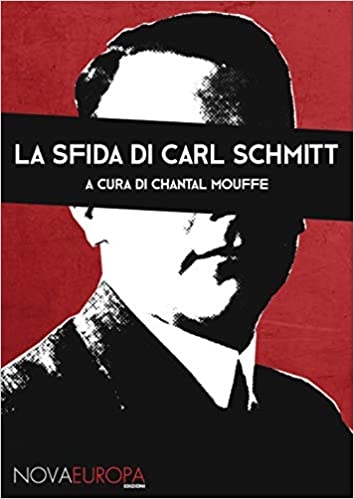

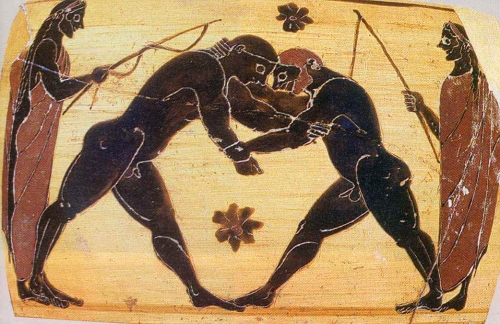
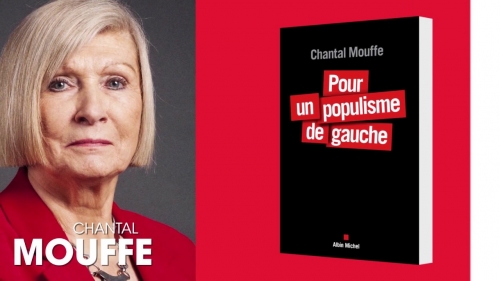
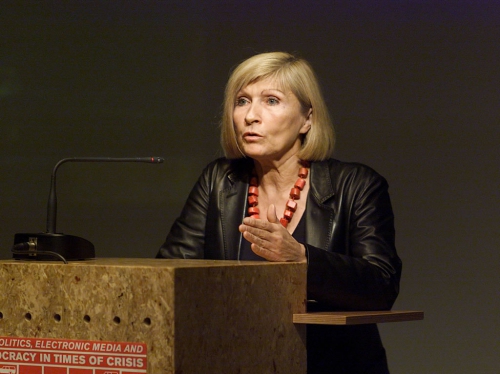
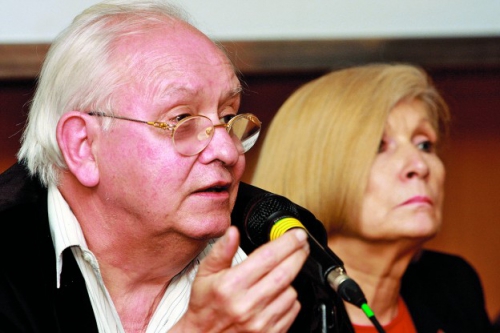
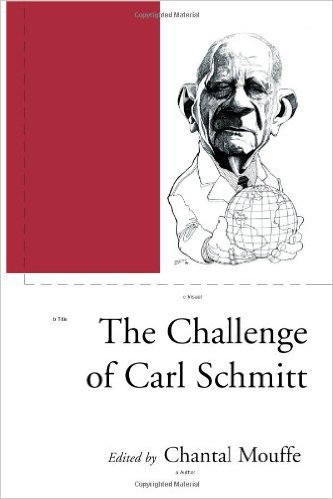 Net als Carl Schmitt (1888-1985) voert Chantal Mouffe de differentia specifica van het politieke terug op het onderscheid tussen vriend en vijand; oftewel tot de altijd aanwezige mogelijkheid van vijandelijkheid in intermenselijke relaties. Mouffe zegt niet dat alle sociale relaties noodzakelijk antagonistisch zijn, maar dat de mogelijkheid van conflict en vijandigheid in elke relatie op elk moment aanwezig is. Het politieke heeft altijd te maken met conflict en antagonisme, het gaat altijd gepaard met de formatie van een ‘wij’ versus een ‘zij’. In de discourstheorie van Laclau en Mouffe heet dit equivalentielogica: het opdelen van de sociale ruimte door betekenissen en identiteiten te comprimeren tot twee antagonistische polen.
Net als Carl Schmitt (1888-1985) voert Chantal Mouffe de differentia specifica van het politieke terug op het onderscheid tussen vriend en vijand; oftewel tot de altijd aanwezige mogelijkheid van vijandelijkheid in intermenselijke relaties. Mouffe zegt niet dat alle sociale relaties noodzakelijk antagonistisch zijn, maar dat de mogelijkheid van conflict en vijandigheid in elke relatie op elk moment aanwezig is. Het politieke heeft altijd te maken met conflict en antagonisme, het gaat altijd gepaard met de formatie van een ‘wij’ versus een ‘zij’. In de discourstheorie van Laclau en Mouffe heet dit equivalentielogica: het opdelen van de sociale ruimte door betekenissen en identiteiten te comprimeren tot twee antagonistische polen.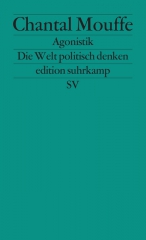 Wat een radicale democratie à la Laclau en Mouffe onderscheidt van de moderne politieke projecten, is dat ze niet van een realiseerbare telos uitgaat, maar van het besef dat elk sociaal project onvolmaakt en conflictueel zal blijven. Het streven naar een volledig democratische maatschappij, waarin alle mensen volledig vrij zijn omdat ze volledig gelijk zijn, en vice versa, veronderstelt een volledige transparantie. Het veronderstelt een samenleving zonder spanningen en repressie, die dus alle conflicten onderdrukt. [11] Zo’n harmonieuze democratie zou een totalitaire nachtmerrie zijn. Bij Laclau en Mouffe wordt de mogelijkheid om het finale doel te realiseren verlaten, zelfs als louter regulatief idee. Er is trouwens geen reden om dat te betreuren. Integendeel, het is de garantie dat het democratisch-pluralistisch proces aan de gang blijft. Het is door de liberale rechten samen met volkssoevereiniteit te articuleren, dat we vermijden dat de democratie tiranniek wordt. Een ideale, vrije en gelijke democratische samenleving is er noodzakelijk een zonder pluralisme, want pluralisme veronderstelt dat de sociale orde en haar machtsrelaties kunnen worden gecontesteerd. Een samenleving zonder machtsrelaties (het einde van de politiek) is evenmin mogelijk, want het zijn precies de machtsrelaties die de sociale orde constitueren. Laclau en Mouffe vertrekken dus van een niet-reduceerbare, pluralistische sociale orde; en dit betekent dat de finale sociale orde nooit bereikt wordt. Niet alleen de individuen verkeren in de onmogelijkheid om hun identiteiten te finaliseren; ook de samenleving als zodanig is nooit af.
Wat een radicale democratie à la Laclau en Mouffe onderscheidt van de moderne politieke projecten, is dat ze niet van een realiseerbare telos uitgaat, maar van het besef dat elk sociaal project onvolmaakt en conflictueel zal blijven. Het streven naar een volledig democratische maatschappij, waarin alle mensen volledig vrij zijn omdat ze volledig gelijk zijn, en vice versa, veronderstelt een volledige transparantie. Het veronderstelt een samenleving zonder spanningen en repressie, die dus alle conflicten onderdrukt. [11] Zo’n harmonieuze democratie zou een totalitaire nachtmerrie zijn. Bij Laclau en Mouffe wordt de mogelijkheid om het finale doel te realiseren verlaten, zelfs als louter regulatief idee. Er is trouwens geen reden om dat te betreuren. Integendeel, het is de garantie dat het democratisch-pluralistisch proces aan de gang blijft. Het is door de liberale rechten samen met volkssoevereiniteit te articuleren, dat we vermijden dat de democratie tiranniek wordt. Een ideale, vrije en gelijke democratische samenleving is er noodzakelijk een zonder pluralisme, want pluralisme veronderstelt dat de sociale orde en haar machtsrelaties kunnen worden gecontesteerd. Een samenleving zonder machtsrelaties (het einde van de politiek) is evenmin mogelijk, want het zijn precies de machtsrelaties die de sociale orde constitueren. Laclau en Mouffe vertrekken dus van een niet-reduceerbare, pluralistische sociale orde; en dit betekent dat de finale sociale orde nooit bereikt wordt. Niet alleen de individuen verkeren in de onmogelijkheid om hun identiteiten te finaliseren; ook de samenleving als zodanig is nooit af.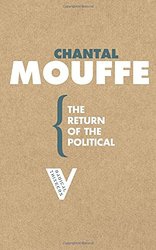 De ideologische tegenstellingen tussen de gevestigde partijen is in de loop van het laatste decennium alsmaar kleiner geworden, waardoor het steeds moeilijker is om partijen en politici in hun optreden en standpunten te onderscheiden. Ideologische beginselen boeten aan belang in, terwijl politiek pragmatisme en consensuspolitiek op de voorgrond treden. In de consensuspolitiek van het centrum, zegt ook de Sloveense filosoof Slavoj Zizek, moet elke fundamentele belangentegenstelling plaats ruimen voor een vrijmoedig geloof in een politiek zonder ware tegenstanders, en zonder enige subversiviteit. [12] Eens beyond left and right lossen sociale tegenstellingen vanzelf op en bieden er zich politieke oplossingen aan die kennelijk voor iedereen goed zijn. Bij gebrek aan een reële politieke strijd, onderscheiden politieke partijen zich enkel nog door culturele attitudes. De politieke strijd wordt herleid tot een belangencompetitie op neutraal terrein, met als enige doel het bereiken van compromissen en het aggregeren van voorkeuren. Om fundamentele belangenconflicten te omzeilen, weigert men om duidelijke politieke grenzen te trekken. Daarmee wordt de integratieve rol van conflict in de moderne democratie genegeerd. [13]
De ideologische tegenstellingen tussen de gevestigde partijen is in de loop van het laatste decennium alsmaar kleiner geworden, waardoor het steeds moeilijker is om partijen en politici in hun optreden en standpunten te onderscheiden. Ideologische beginselen boeten aan belang in, terwijl politiek pragmatisme en consensuspolitiek op de voorgrond treden. In de consensuspolitiek van het centrum, zegt ook de Sloveense filosoof Slavoj Zizek, moet elke fundamentele belangentegenstelling plaats ruimen voor een vrijmoedig geloof in een politiek zonder ware tegenstanders, en zonder enige subversiviteit. [12] Eens beyond left and right lossen sociale tegenstellingen vanzelf op en bieden er zich politieke oplossingen aan die kennelijk voor iedereen goed zijn. Bij gebrek aan een reële politieke strijd, onderscheiden politieke partijen zich enkel nog door culturele attitudes. De politieke strijd wordt herleid tot een belangencompetitie op neutraal terrein, met als enige doel het bereiken van compromissen en het aggregeren van voorkeuren. Om fundamentele belangenconflicten te omzeilen, weigert men om duidelijke politieke grenzen te trekken. Daarmee wordt de integratieve rol van conflict in de moderne democratie genegeerd. [13]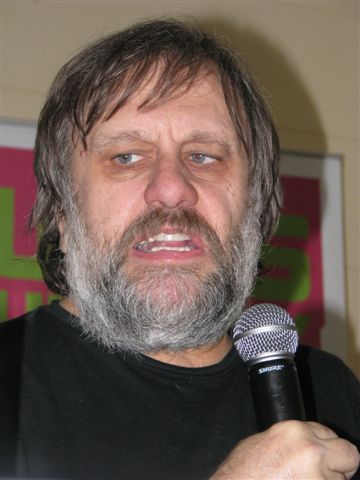 Dienen we de kritiek van Chantal Mouffe op te vatten als een ultieme oproep om het cordon sanitaire in Vlaanderen dan toch maar op te doeken? Dat valt te betwijfelen. Waar het Mouffe om te doen is, is laten zien wat het ons heeft opgeleverd, om daaruit conclusies te trekken. Het probleem is overigens niet dat mensen uit zijn op conflict omwille van het conflict. Het probleem is dat, door het gebrek aan een sociale horizon, bepaalde sentimenten geen uitdrukking vinden binnen het democratisch spectrum. Deze sentimenten moeten democratisch gemobiliseerd worden; en daarvoor moeten de democratische partijen een sociale horizon projecteren die mensen uitzicht biedt op een andere en betere toekomst.
Dienen we de kritiek van Chantal Mouffe op te vatten als een ultieme oproep om het cordon sanitaire in Vlaanderen dan toch maar op te doeken? Dat valt te betwijfelen. Waar het Mouffe om te doen is, is laten zien wat het ons heeft opgeleverd, om daaruit conclusies te trekken. Het probleem is overigens niet dat mensen uit zijn op conflict omwille van het conflict. Het probleem is dat, door het gebrek aan een sociale horizon, bepaalde sentimenten geen uitdrukking vinden binnen het democratisch spectrum. Deze sentimenten moeten democratisch gemobiliseerd worden; en daarvoor moeten de democratische partijen een sociale horizon projecteren die mensen uitzicht biedt op een andere en betere toekomst.

 Mouffe: I think that criticizing an agonistic perspective for not being critical enough of capitalism is basically a difference of strategy and again this is where the strategy of ‘engagement with’ or, using a term of Gramsci - ‘a war of position’ - is what is the one I propose. I imagine that the person that you have in mind is Slavoj Žižek because he's the one who is criticising the agonistic approach for being a liberal one. But his position is a rhetorical revolutionary one which does not propose any strategy. We want the end of capitalism, sure, but how are we going to do it, with whom? It's very rhetorical to say: the end of capitalism. I think the question is to engage with existing institutions, and this requires a long process. Some people still would say we need a revolution like the Soviet revolution. If we are to learn something from the experience, the tragic experience of really existing socialism, is precisely that this strategy of making a complete new start doesn’t work. You can't just end a society in one move and start from scratch - it’s not possible. It’s only possible by using terror. ‘A war of position’ is better strategy; we need to target specific institutions in order to transform them. For me at the moment the most important task is to end the hegemony of neoliberalism and of financial capitalism. Of course that's not going to be the end of capitalism. The aim is to create a society that will not be submitted to the logic of the market. They might still remain some sectors which are going to be organised by capitalists but the main society will not be one in which the market controls everything. But that cannot be done one day. There are of course proposals in the line of Hardt and Negri who believe that the development of the self-organisation of the multitude is going to make capitalism completely irrelevant. They accept that it is going to be a process and they do not advocate any kind of Jacobin form of revolution but they believe that the state will disappear and I don't believe that. Some of those experiences of new forms of living are important but they are not enough. The power of capitalism is not going to disappear because we have a multitude of self-organizing outside the existing institutions. We need to engage with those institutions in order to transform them profoundly. I saw a few years ago a film called Was tun? (What is to be done). It was about the anti-globalization movement and the role of Hardt and Negri’s strategy. At the end of the film they asked them “what should we do?” And Negri answered “wait and be patient” and Hart answered “follow your desire.” That’s their strategy. They believe that there is some kind of law of history that is necessarily going to lead to ‘absolute democracy’. It's very similar to the traditional Marxist view that capitalism is its own gravedigger but I don't think that's the case. Capitalism is not going to disappear simply by us being patient and waiting, we need to engage with it, and that is the strategy of agonistic engagement. It's not a total revolution, that’s not possible, it's ‘a war of position’ in order to transform the existing institutions.
Mouffe: I think that criticizing an agonistic perspective for not being critical enough of capitalism is basically a difference of strategy and again this is where the strategy of ‘engagement with’ or, using a term of Gramsci - ‘a war of position’ - is what is the one I propose. I imagine that the person that you have in mind is Slavoj Žižek because he's the one who is criticising the agonistic approach for being a liberal one. But his position is a rhetorical revolutionary one which does not propose any strategy. We want the end of capitalism, sure, but how are we going to do it, with whom? It's very rhetorical to say: the end of capitalism. I think the question is to engage with existing institutions, and this requires a long process. Some people still would say we need a revolution like the Soviet revolution. If we are to learn something from the experience, the tragic experience of really existing socialism, is precisely that this strategy of making a complete new start doesn’t work. You can't just end a society in one move and start from scratch - it’s not possible. It’s only possible by using terror. ‘A war of position’ is better strategy; we need to target specific institutions in order to transform them. For me at the moment the most important task is to end the hegemony of neoliberalism and of financial capitalism. Of course that's not going to be the end of capitalism. The aim is to create a society that will not be submitted to the logic of the market. They might still remain some sectors which are going to be organised by capitalists but the main society will not be one in which the market controls everything. But that cannot be done one day. There are of course proposals in the line of Hardt and Negri who believe that the development of the self-organisation of the multitude is going to make capitalism completely irrelevant. They accept that it is going to be a process and they do not advocate any kind of Jacobin form of revolution but they believe that the state will disappear and I don't believe that. Some of those experiences of new forms of living are important but they are not enough. The power of capitalism is not going to disappear because we have a multitude of self-organizing outside the existing institutions. We need to engage with those institutions in order to transform them profoundly. I saw a few years ago a film called Was tun? (What is to be done). It was about the anti-globalization movement and the role of Hardt and Negri’s strategy. At the end of the film they asked them “what should we do?” And Negri answered “wait and be patient” and Hart answered “follow your desire.” That’s their strategy. They believe that there is some kind of law of history that is necessarily going to lead to ‘absolute democracy’. It's very similar to the traditional Marxist view that capitalism is its own gravedigger but I don't think that's the case. Capitalism is not going to disappear simply by us being patient and waiting, we need to engage with it, and that is the strategy of agonistic engagement. It's not a total revolution, that’s not possible, it's ‘a war of position’ in order to transform the existing institutions.
